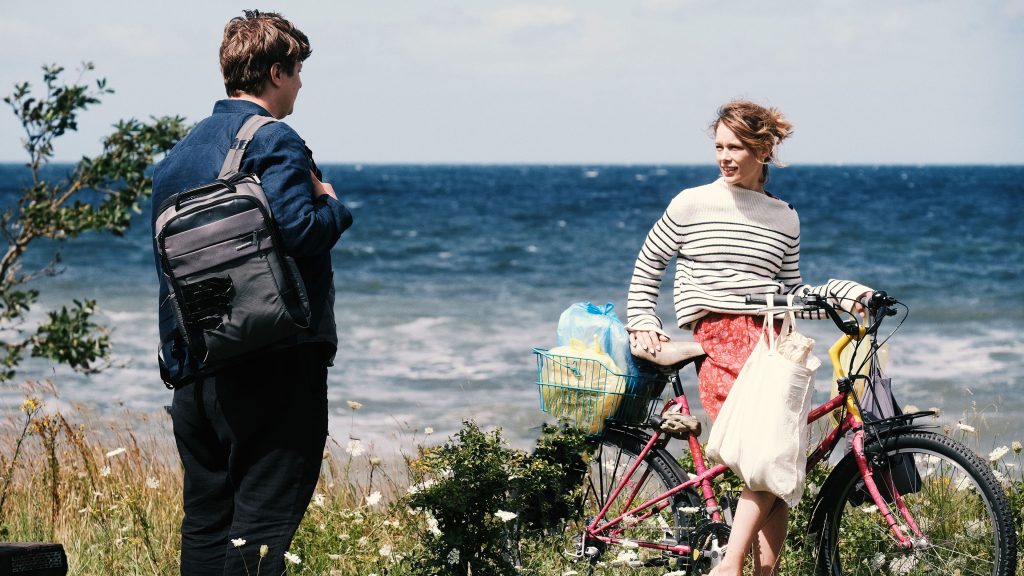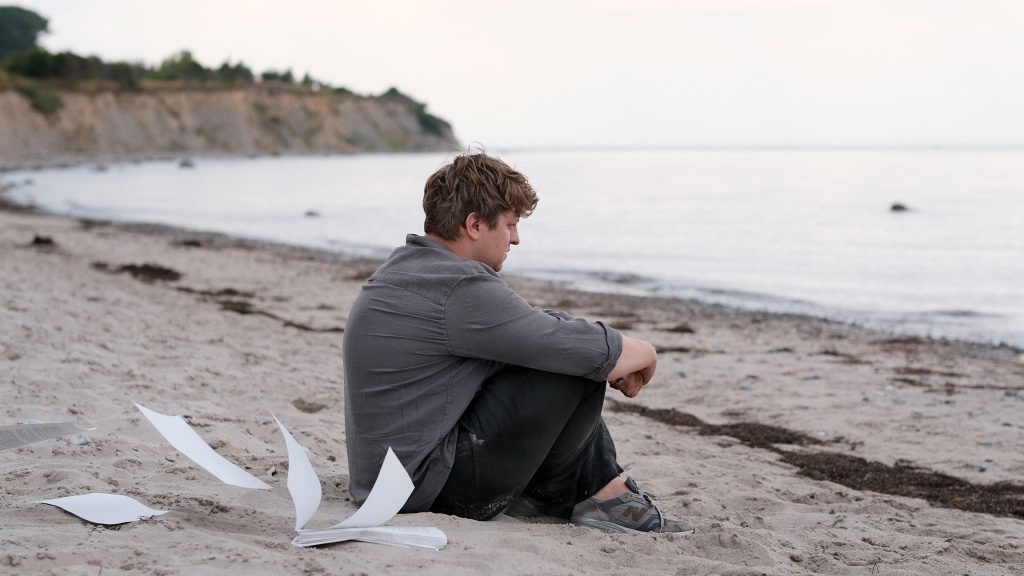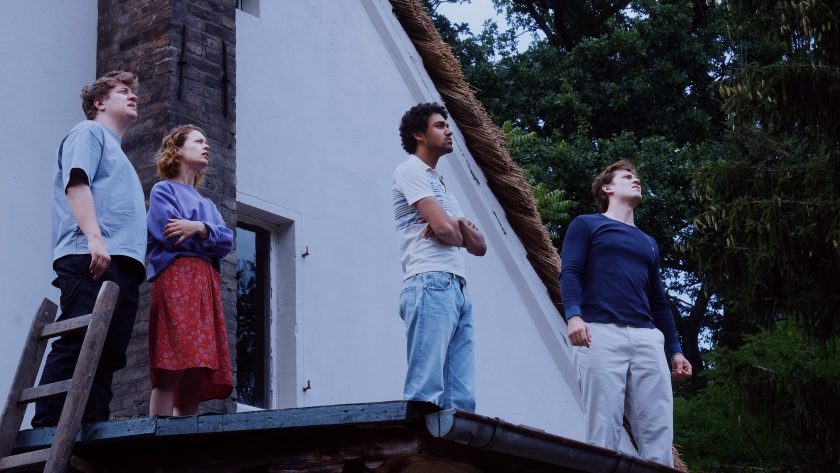The FilmSoc Journal is back for the 73rd edition of Berlinale, with critic Aryan Tauqeer delivering a look at the hits and misses of the upcoming 2023-4 season of cinema.
Aryan Tauqeer reviews Christian Petzold’s Afire, a Rohmeresque summertime romantic comedy that slowly but surely spirals into a tragedy of ecological proportions.
In 1938, the first edition of Gustav Schwab’s Sagen des klassischen Altertums (Gods and Heroes: Myths and Epics of Ancient Greece), was published, becoming almost immediately a key text on the guiding myths of antiquity. Schwab, perhaps now a less widely recognized figurehead of German Romanticism than his literary and musical contemporaries, had assembled a compendium of the legends of Hellenic antiquity that remain foundational to virtually any deliberation on hubris, the pitfalls of greed and the most damning facets of the human condition today. Amongst these tales are that of Jason and The Argonauts, which viewers of a certain age might be primarily acquainted through with the Hermann-scored 1963 adaptation. In the travails of the Argonauts, one of the most widely known (and pastiched) excerpts is that of their encounter with the Sirens. Saved from certain death only by the lyre of Orpheus, the Sirens are resigned to a mere footnote in the Argonautica, and more pertinently, condemned to an uncertain death- for if anyone were to hear their song and live another day, the Sirens themselves would perish. Notwithstanding the context from which it stems from, it is not difficult to see why the parable of death by means of incomprehensible beauty might be a popular source of inspiration for genre filmmakers, or virtually any artist concerned with decay in a fashion that resembles vitality. Christian Petzold is no stranger to the potency of these time-worn tales as instructive foundations for contemporary strife- in his last film, Undine, he adapted Ingeborg Bachmann’s Undine geht, which reverses the role of the sea-bound nymph and her hopelessly devoted male admirer by shattering the prism of a fairytale, with the titular Undine being drawn towards a future at the same time as being submerged. Petzold’s rendition of the story transposed it onto contemporary Berlin- a city in fluxion between past and present, and where the presence of the former may be overridden by the weaving of new guiding myths of a history yet to come. In Afire, he once again translates a time-worn parable of obsession into modernity, but this time it has less to do with the embracing of a beauty that is at odds with what surrounds it than it is with the very fear of embracing the world outside oneself- of obsession not with another but with oneself.

Unfolding on a picturesque island in the Baltic Sea, the film’s narrative is less premeditated than it is seemingly adapting itself to whatever annoyances plague the cantankerous writer at its heart, Leon (Thomas Schubert), accompanied by his remarkably more agreeable companion Felix (Langston Uibel). To even those already well-acquainted with Petzold’s work, the structure of the film may be surprising- for one, it carries all the bearings of a comedy with it for much of its runtime, deriving amusement from the central conflict between a writer who just wants to be left alone and a friend who can’t bear to be left alone. It isn’t just the narrative structure of the film that lends itself to such levity, since at its core is the holiday home that they have rented, which functions as a physical coda for Petzold’s concerns with the destructiveness of the narcissistic writer, who spends much of his time on the picaresque resort abstaining from contact in favour of committing to his “work”- which, as with the source of the strange phenomena that come to haunt the two Germans, is a concept that is never fully clarified. A string of minor annoyances slowly chips away at Leon’s patience, beginning with the absence of a designated space for his writing (something that brings Felix immense amusement), and prolonging in the form of the couple who unexpectedly seem to have taken up residence in the room next to Leon and Felix’s, and whose rather enthusiastic coital exclamations prevent Leon from getting any sleep. Unlike some of Petzold’s more fascinating subjects, there is very little intrigue or fantasy to Leon- he is the archetypal male artist with (at least according to his companions) very little in the way of literary talent, and even less in the way of charisma. That glaring absence of charisma becomes painfully apparent when he encounters Nadja (Paula Beer), his enigmatic new housemate.
As in Undine, Beer embodies cryptic impenetrability faultlessly- something that Petzold achieves through the intensity of the film’s blocking, with Nadja’s presence first becoming apparent as a crimson-haired figure sorting through the weeds in the garden outside the resort, whilst Leon clumsily gazes on. There’s a palpable disconnect between Leon and his surroundings, whereby he grows increasingly alienated from Felix once they start to develop a friendship (and in Felix’s case, a romance) with Paula and her erstwhile companion Devid. At the film’s press conference during the Festival, Petzold made it clear that the film’s resemblance to Eric Rohmer’s episodes of summer love, lust and heartbreak was very much intentional, and not just because of the careful attention paid to how textures of sunlight and saltwater mediate its characters’ inner turmoils. The sunlit éducation sentimentale that recurs so often in the French New Wave is transposed onto the literary context of German Romanticism- whether it’s the poetry of Heinrich Heine or the elemental contrast it strikes between the wildfires creeping up on the film’s proceedings and submersion into water in Undine, Petzold’s tale of summertime sadness is engaged in a dialectic with the literature that informs -and in the case of Leon, tortures- how its characters approach what could very well be a crucial period of their lives. Recalcitrant he may be towards the prospect of engaging with anything outside the manuscript of his sophomore novel and his soft-spoken editor Helmut, but the lived-in inexperience of Schubert’s performance renders Leon a deeply empathetic figure. He’s a constant intruder upon the joy of almost everyone he encounters in the film, and it isn’t once the time he affords himself to work on his novel begins to run out that the character goes from a misanthrope right out of a Woody Allen film to a helpless dope whose near-Protestant work ethic is finally shattered by shame.

But it isn’t until the haze of orange in the distance grows from a mere feature of the landscape to a threat that the shape of the film, which has largely remained up until that point within the realm of the romantic comedy, takes on a form far more amorphous and eerie. The newfound panic that disturbs Leon and Felix’s relative idyll bore, at least in my eyes, a resemblance to not Petzold’s previous work nor any of his European contemporaries. Instead, it recalled the late-period work of Kiyoshi Kurosawa- in particular, his deliberations upon loneliness and the possibility of a life beyond the endpoint of physical eradication in Journey to the Shore and Before We Vanish. The tonal shift is so slight so as to barely be noticeable, but once it settles in, the viridescent shell encasing Petzold’s holidaygoers falls apart with astonishing and unsettling swiftness, as they arrive at certain realizations too late to act upon. The nigh-apocalyptic swarm of flames enveloping the forest may be out of Leon’s hands, but he has no one to blame but himself for the crushing loneliness that befalls him. Petzold’s images mirror this evisceration of security, not just in their urgency of movement but in the creation of genuinely horrifying tableaus of decay, where what appears to be a sudden flurry of snowfall is merely the settling of ashes upon blasted landscapes. Long after all has burned, there’s a single image from Afire that has remained with me- except it isn’t an image originally from the film. It’s the image of The Two Maidens of Pompeii: what appear to be two lovers, encased in ash and embracing each other in their final moments. There is little that is known about the remains besides their source of origin, or if they even were lovers- all that is apparent is that as their lives ended along with that of everything surrounding them, they held onto each other. I gleaned a similar impression from Petzold’s film, which overwhelms the viewer with such knotty, embarrassing waves of emotion that by the time the inevitable rolls around, the viewer finds themselves utterly disarmed by tragedy.
Afire does not have a UK release date yet. Watch the trailer for the film here:




